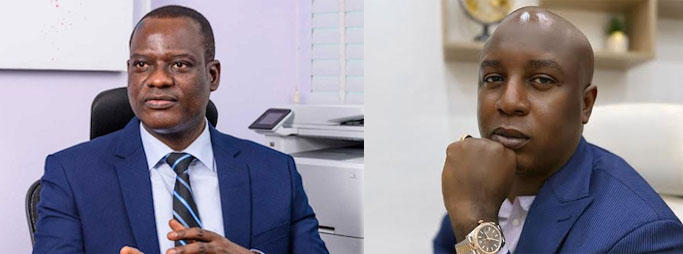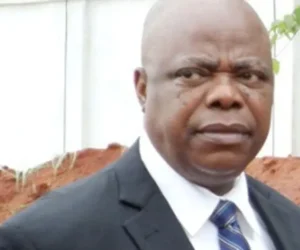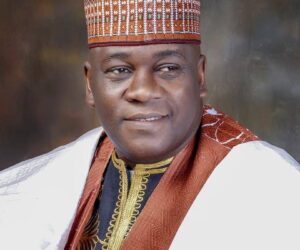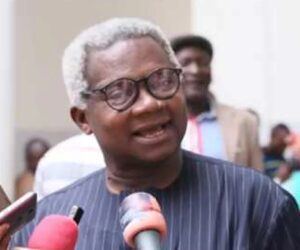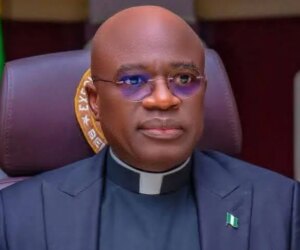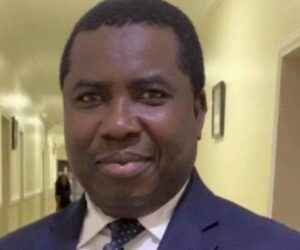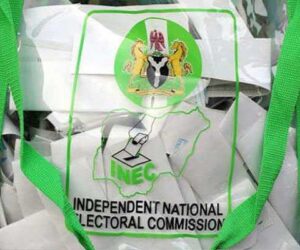1
Against the backdrop of recent efforts by the Federal Government to generate more revenue from taxes through tax reforms, an Abuja-based economist, finance expert, Olatunji David has said that Nigeria indeed needs a robust tax system robust tax system.
It would be recalled that the Chairman of the Presidential Committee on Fiscal Policy and Tax Reforms, Taiwo Oyedele, recently said that Nigeria can generate more revenue without raising taxes and hurting the economy.
Chairman, Presidential Advisory Committee on Fiscal Policy and Tax Reform, Mr. Taiwo Oyedele, on Monday, clarified that contrary to speculations, individuals earning about N1.7 million or less per month will pay lower Pay As You Earn (PAYE) tax under the proposed Tax Amendment Bills before the National Assembly.
Also, dousing workers fears, Oyedele had said that workers earning the new minimum wage and slightly more will also be fully exempted from tax obligations.
Addressing various tax issues on X, formerly Twitter, Oyedele said these thresholds would result in over 90 per cent of workers in the public and private sectors paying lower taxes, while high income earners will pay slightly more in a progressive manner up to 25 per cent for the ultra-high net worth individuals.
In a chat with Sunday Independent, an Agricultural Tech Entrepreneur and CEO, Farmerly, maintained that the new tax reforms of the Federal Government are necessary and should be supported by every Nigeria.
David stated: “Walk into any Nigerian market today and you will hear the same chorus of frustration. The pepper seller laments that transport costs have swallowed her profit. The mechanic complains about spare parts that are now almost unaffordable because of rising import duties.
“The barber, despite paying higher electricity tariffs, still relies heavily on his generator. The civil servant, already stretched by rent, food, and school fees, fears that his modest salary may shrink further with higher deductions.
“Amid this harsh reality, the government has introduced a proposed tax reform, a law intended to diversify revenue sources and reduce Nigeria’s dangerous dependence on oil.
“Yet, to the average Nigerian, the word ‘tax’ carries a familiar sting: another burden in a system that already seems unforgiving.
“As both an economist and a businessman, I believe the question is not whether Nigeria needs a robust tax system, it certainly does.
“Rather, the challenge lies in how to design and enforce one without breaking the backs of the low and middle class, who are the true engines of survival in this economy.
Why Tax Matters
While stressing on why the Federal Government should have an excellent tax system, David, maintained that no nation develops without a working tax system.
He stressed: “In advanced economies, taxes fund hospitals, schools, roads, policing, and social safety nets. In Nigeria, however, there is a deep disconnect between taxation and trust.
“Citizens rarely see the benefits of their contributions, leading to widespread evasion and resentment. If this new law is to work, it must be built on fairness, transparency, and visible results.”
What the Reform Proposes
David who took time to explain what the tax reform laws stated, said the draft bill introduced sweeping changes designed to modernise Nigeria’s fiscal structure.
On Personal Income Tax (PIT), he informed that Individuals earning ₦800,000 or less annually would be exempted from taxes, while others would be taxed progressively up to 25%.
Also, David also spoke about Expanded Exemptions, stressing that Compensation for job loss or injury would now be tax-free up to ₦50 million (up from ₦10 million).
He also revealed that Value Added Tax (VAT),will increase gradually to 12.5% by 2026, though essential goods like food, tuition, medicine, and electricity remain zero-rated.
Other aspects of the tax reform law in that there will be a Consolidated Development Levy, which would be a flat 4% levy on company profits (excluding small businesses), replacing multiple existing levies.
He stated that there will be a Minimum Effective Tax Rate, adding that large firms with turnover above ₦50 billion or multi-nationals with global turnover above €750 million must pay at least 15%.
Other features include: Capital Gains Tax (CGT): Aligned with corporate tax at 30% for companies, with individuals paying according to their income tax bracket, while Indirect share transfers will now be captured.
Also, there will be Digital Compliance: These include Mandatory e-invoicing, e-filing, and fiscalisation to expand the tax net. Moreover, there will be New Nigeria Revenue Service, which will replace FIRS with broader enforcement powers.
Davisd maintained that these measures are aimed to align Nigeria with global standards while expanding the tax base,especially in the digital economy.
He maintained: “But while policy makers assure citizens that exemptions will protect the vulnerable, critics fear that the combination of higher VAT and stricter compliance could tighten an already suffocating atmosphere.”
The Real Impact on Ordinary Nigerians
David maintained that on paper, the relief for low-income earners is significant. According to him, a civil servant earning ₦600,000 annually would now pay zero income tax, while those earning ₦5 million or more will contribute more.
He added that small businesses could benefit from simplified levies and clearer input VAT recovery, though many may struggle with the upfront costs of digital compliance.
“But, the daily struggles of Nigerians go beyond tax. Rent remains extortionate, with landlords demanding one to two years’ payment in advance. Electricity is unreliable yet costly, forcing businesses and households into perpetual reliance on generators,” David stressed.
He lamented: “Food inflation continues unchecked, driven by insecurity, transport bottlenecks, and poor storage facilities. Transport fares, fuel costs, and spare part prices rise endlessly.
“If government ignores these realities ,while enforcing new taxes, the reform risks pushing millions of already weary citizens into deeper hardship.”
What Government Must Do Differently
David maintained that for this reform to succeed, government must ease pressure in other areas. These are: “Housing: Enforce rent regulation and allow monthly or quarterly payments; Electricity: Tariffs must reflect actual supply. Citizens cannot continue paying heavily for darkness. Affordable and stable power would reduce costs for small businesses and encourage growth; Spending Transparency: Citizens must see results. Tax money should reflect in repaired roads, improved schools, functional hospitals, and safer communities. Without visible impact, compliance will remain low. Grassroots Sensitisation: The National Orientation Agency (NOA) must step up.”
He maintained that beyond TV and radio, education must reach markets, shops, mosques, and churches, in local languages and practical terms. Tax education must also be integrated into the school curriculum, so future generations see tax as duty, not punishment.
The Role of Citizens
David stressed that Nigerians, too, must adjust. He stated: “In this season, prudence is essential: prioritise food, rent, healthcare, education, and electricity above luxuries.
“Savings, even small ones, through cooperatives or digital wallets, can cushion shocks. Every family should think entrepreneurially. Multiple income streams make tax obligations lighter.
“Communities should organise to press collectively for fair conditions, especially against exploitative landlords and service providers.”
He warned that tax should not be a noose around the neck of the Nigerian people. Rather, according to him, it should be a bridge between citizens and their government, a tool for building the society we desire.
“But, this bridge can only stand if government ensures fairness, accountability, and transparency, while citizens uphold their responsibility with discipline.
“The truth remains: no country grows without shared sacrifice. If both sides play their roles sincerely, taxation will cease to feel like a curse. Instead, it will be seen as an investment in a Nigeria where prosperity is not the privilege of a few, but the right of all,” Dadid stressed.

